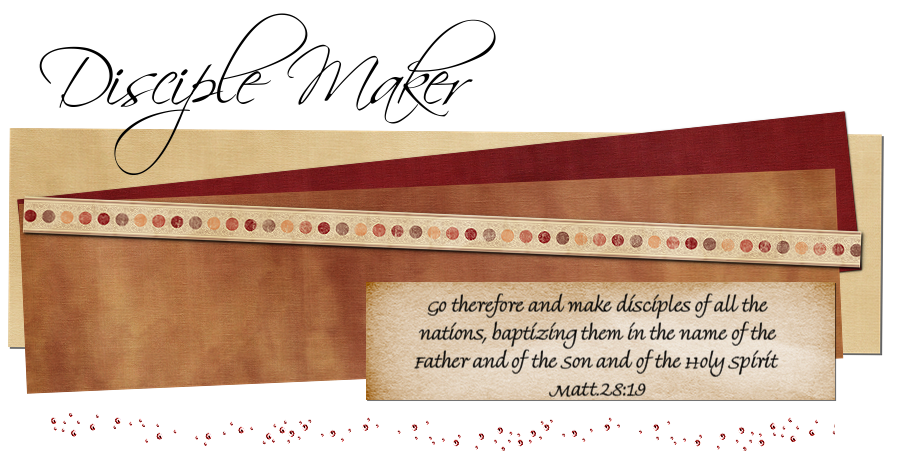Cultivating
Missional Living
Hear O Church, One Lord, One Life
Theme:
Committing Our Whole Lives to God
Deut.
6:1-9, Mark 12:29-31, Romans 12:1-2
Response:
Seeing and Responding to Gods Missional Work
Lord
Over All
Ours is
a culture totally different from the audience that sat at the feet of our
Jesus. His listeners were not comprised of twenty-first century Westerners who
are mostly a reasoning and scientifically- minded society. The ancient Near
East people were deeply spiritual and consciously aware of sacred, mystical,
and even magical realms. Theirs was a culture that was filled with a number of
gods and demigods. They were pluralists. Virtually every sphere of life had a
god that was seen as ruling over it. There was a god of the forest, family,
river, sun, moon, and harvest and so on.
So it
is within this culture that one of the local scribes approached our Jesus to
ask Him what the most important commandment was, (Mark 12:29-31). Can you
imagine that? Out of all the commandments in the Old Testament, this guy wanted
Jesus to narrow them down to the one. How could this be possible? I mean, God
Himself issued each and every one of the commandments. Aren’t they all
important? Every single one came from the lips of God! How could one commandment
stand above all the rest?
And
typically, in the Gospels when Jesus was asked a question, He answered it with
another question, or sometimes even a parable. This as we have seen often in
our Wednesday night Bible study was a very typical rabbinic method of teaching.
But, on this occasion, departing from His normal way of responding, Jesus not
only answered the question posed to him; He did so quickly and plainly.
It
would not have been unreasonable to expect Jesus to respond. As He so typically
did, by asking another thought provoking question. It is easy to imagine Jesus
saying something like, look around you, look to the field and mountains, look
to the sea. Which of all these creations of God is the most important. Our
Jesus could have said, every commandment is God breathed and not one is more or
less important than the other. But immediately Jesus answered without
hesitation. And He went even further, he gave the guys a two for one deal. Jesus
told the scribe the number one most important commandment plus the number two most important
commandment.
‘Hear, O Israel: The Lord our God, the Lord
is one. And you shall love the Lord your God with all your heart and with all
your soul and with all your mind and with all your strength.’ The second is this:
‘You shall love your neighbor as yourself.’ There is no other commandment
greater than these.
Listen Up
The
commandment that Jesus proclaims as the most important is known as the Shema, which means “hear.” What we are
to hear is that there are not a multitude of gods (polytheism). The implication
is that one God is Lord over every part of our lives, no exceptions. Nothing lies
outside of His claim or His power. So, this idea destroys the concept of there
being sacred and secular places in our lives. (Dualism) Our God is God from the
bedroom to the boardroom, from the work place to the play place, from our
living room to the school room, and everyplace in between.
The
Shema (“ Hear, O Israel . . .”) in Deuteronomy 6: 4 is the claim of Yahweh over
against the competing claim of the many other gods in the polytheistic
religious environment of the day. It is
a call for the loyalty of the people. The claim has direct and concrete
implications: It is a call for the
Israelites to live their lives under the Lordship of one God and not under the oppression
of the many gods. In other words, it is a practical call not to live one’s
life as if there were a different god for every sphere of life— a god of the
field, a god of the river, a god of fertility, a god of the sun, and so forth.
The Word of our God loudly proclaims that
there is only one God and He is Lord of every aspect of life. Again, here the
concrete and practical nature of Hebraic thinking comes to the forefront.
Polytheists can compartmentalize life and distribute it among many powers. But the man or women in the Israelite
world who has faith is not distinguished from the pagan worldview by a mere
spiritual view of the Godhead, but by
the exclusiveness of his relationship to God, and by his reference of all
things to him. So, Biblical believers have only one reference point. This
is the biblical mode of thinking— concrete and practical. The implications are
far reaching, not as simple
theology, but as practical missiology.
A re-Hebraizing of Christianity is so vital for the emergence of the
missional-incarnational church.
This
claim to unify our lives under the one God has truly radical implications for
us today as we struggle to find new ground on which to base our discipleship.
Biblical monotheism means that we cannot live like there is one “god” for the
church and another for politics and another in economics or still another for
the home. No, all of life, every aspect of it, every dimension, is to be
brought under and unified under the ONE God, Yahweh. Seen in this light, the
Shema is a claim of God’s exclusivity and a direct challenge from God about the
role of idols in the believer’s life.
So,
especially, in a culture like ours, where a lack of integration in every sphere
of our lives is the norm, the importance of understanding and acting on the truth of the Shema cannot be
overstated. Our society is one that lacks connection between the people and
the places that make up our lifestyle patterns. The people we work with are not
the same people we see in our favorite coffee house. The folks that we see in
the park are not the same people we see in our grocery stores. And for the most
part, none of these people are members of our own local church.
There
are only one or two types of places most people, Christian or not consider to
be sacred. These spots are official places of worship, a church, a synagogue,
or a mosque and the home. The remaining places are called secular territory. If
you ask most Christians, they consider their places of work, recreation,
education, commerce, and the marketplace to all be secular places.
Lord of All
Secular,
by definition means “non-sacred” or “apart from God” Theologians call this idea
dualism, a terribly dangerous precept that not only limits God, but limits
missions. The subconscious result of the dualistic divisions means that most
Christians compartmentalize spirituality into two sacred boxes of church and
home. So, we consider the people we encounter in differing territories the same
way. Especially in Evangelical circles, the people that occupy “non-sacred”
spaces often become categorized as “them” within the them vs. us delusion that
has become part of the sacred-secular divide.
With
the Shema, Jesus is saying that all dimensions of our lives are under His care,
joy, and rule. God gets out of the stained glass box of church and moves into
every sphere of society. We-those filled with His Spirit-can (should) begin to
understand all of life as ministry and worship. This idea was echoed in the
legendary movie, Chariots of Fire, in which Eric Liddell says, “I believe God
made me for a purpose, but he also made me fast, And when I run I feel His
pleasure.”
So
as we seek to Shema (to hear) we aim to recognize God’s activity throughout our
daily routines. By understanding that God is everywhere and that He is seeking
to restore and redeem broken people and the brokenness throughout all of
creation, our lives take on new meaning-spiritual meaning. …. See, there is
this real tendency to think of the spiritual life as a life that will begin
when we have certain feelings, think certain thoughts, and gain certain
insights. …. The problem, though, is not
how to make the spiritual life happen, but
to see where it actually is happening. We will then work on this premise… that our God acts in this world and in the lives
of individuals and communities. That God is doing something right now. So this
work, this chipping away and sculpting by God is taking place whether we are
aware of it or not. Our task is to
recognize that, yes, it is God who is acting and we are involved already in
that spiritual life.
This
sacred-secular divide as a mindset, or a paradigm, has enormous implications
for the life of a Christian. And when one lives under this misguided belief, we
leave God out of the equation of the majority of our actual daily living. But
when we seek to hear God in our daily routines, believing that the Lord is
bringing His Kingdom to earth, we hear and see things we might have never
observed beforehand.
For you
who are Christian business men and women this means that the phrase, “This is a
business” is no longer an acceptable term. Understanding the Shema means that
we understand that God is just as much in on a business deal as He is on the
Sunday Morning Praise and Worship.
Understanding
God is one Lord over all things and beings keeps us tuned in to-hearing-His
voice in every situation. He is Lord of the restaurant, Starbucks, where you
work, play, and the neighborhood.
Romans
12:1-2
On the
basis of the fact that God is overall and in every situation, Paul appeals to
us to offer our whole world up to God in worship. He is Lord over every
dimension of life. Since God is One we have the obligation to “bring every
aspect of our lives, communal and individual, under this One God.
The
Shema is one of the most practical and catalytic passages in all of Scripture.
It is no wonder that Jesus calls it the most important commandment of all. It
calls us to bring our minds, hearts, and bodies under the complete lordship of
Jesus. God is no longer understood as involved in just the “spiritual”
dimensions of our lives, because we
have eliminated the sacred-secular divide from our concept of God and life in
general.
This is
the cornerstone precept of a Biblical Wordview. …We commit our whole life to
God. Nothing is off limits. And, ..If the entire world, including our immediate
world, and all that is within it is truly under the ownership of God, then
there can be no part of my life that is not open to His rule.
But,
honestly it is very easy to profess belief in one God, but in practice, live as
though there are many. To confess Jesus is Lord, means we are loyal to Him
throughout every sphere of our life, as consumers, as neighbors, workers, and
friends. We live one life, under one Lord!
Response:
This
week, decide how you can demonstrate your love for the Lord with your heart, (inner
passion), soul (Mind and spirit) and your strength (Body). Give yourself an
assignment every day. Prayer for your heart, reading for you mind, and serving
someone for your strength.






No comments:
Post a Comment